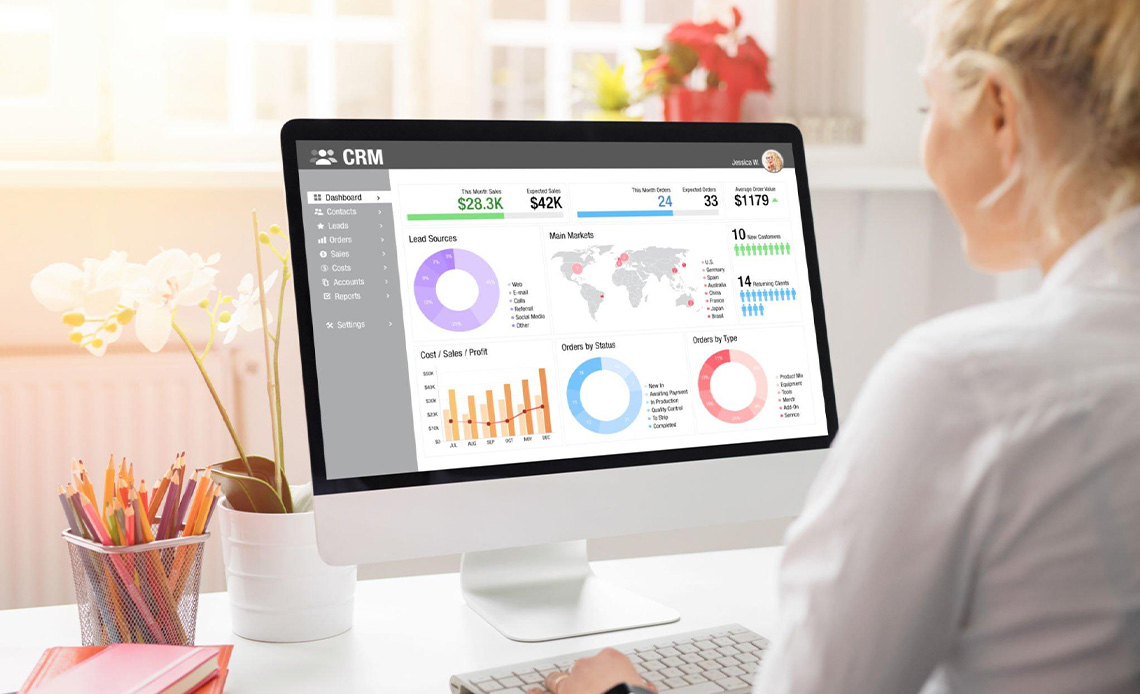Introduction:
In today’s hyper-competitive hospitality industry, delivering exceptional service is the key to success. Customer Relationship Management (CRM) systems have become essential tools for hotels, resorts, and other hospitality establishments. In this blog, we will delve into the realm of CRM analytics and explore how leveraging data insights can elevate service standards, maximize guest satisfaction, and drive revenue growth in the hospitality sector.
Understanding Guest Preferences:
CRM analytics enables hospitality businesses to gain a deep understanding of guest preferences and behavior patterns. By analyzing data such as past purchases, feedback, and demographics, hotels can identify trends and tailor their offerings to meet individual preferences. This personalized approach ensures that guests receive the right amenities, services, and experiences, leading to heightened satisfaction and loyalty.
Forecasting Demand and Optimizing Pricing:
Accurate demand forecasting and strategic pricing are critical for revenue management in the hospitality industry. CRM analytics can help hotels analyze historical booking data, market trends, and guest segments to forecast demand patterns accurately. By leveraging this data, hotels can optimize pricing strategies, implement dynamic pricing models, and maximize revenue potential during peak and off-peak periods.
Proactive Service and Anticipating Guest Needs:
CRM analytics empowers hotels to anticipate guest needs and provide proactive service. By analyzing guest data, including preferences, requests, and previous interactions, hotels can predict future requirements and act proactively. For example, if a guest consistently orders room service during their stay, the hotel can proactively suggest menu options or even have the meal ready in their room upon arrival, exceeding guest expectations.
Reputation Management and Guest Feedback:
Online reputation plays a significant role in the hospitality industry. CRM analytics enables hotels to monitor and analyze guest feedback across various platforms, including social media and review websites. By gathering insights from guest reviews, hotels can identify areas for improvement, address negative feedback promptly, and celebrate positive experiences. This data-driven approach to reputation management helps maintain a positive brand image and enhances guest trust and satisfaction.
Targeted Marketing Campaigns:
CRM analytics enables hotels to develop targeted marketing campaigns that resonate with their audience. By segmenting guests based on their preferences, demographics, and past behaviors, hotels can create personalized marketing messages and offers. This tailored approach increases the likelihood of engagement, conversions, and repeat bookings, ultimately driving revenue growth.
Staff Performance and Training:
CRM analytics can also be utilized to evaluate staff performance and training needs. By analyzing guest interactions, feedback, and ratings, hotels can identify areas where employees excel and areas that require improvement. This data-driven approach enables targeted training programs, helping staff deliver exceptional service and fostering a culture of continuous improvement.
Conclusion:
CRM analytics has become an indispensable tool for hospitality businesses seeking to elevate service standards and maximize guest satisfaction. By leveraging data insights, hotels can understand guest preferences, forecast demand, provide proactive service, manage their online reputation, execute targeted marketing campaigns, and optimize staff performance. Embracing CRM analytics is a transformative step that allows hospitality establishments to deliver exceptional experiences, build guest loyalty, and thrive in the competitive landscape of the industry.




